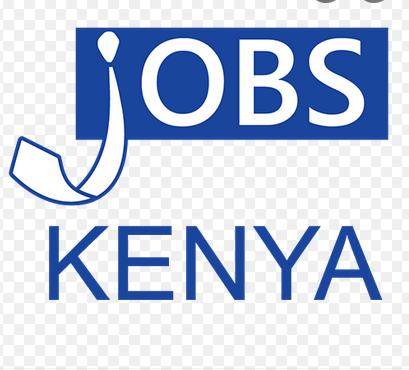A degree in economics and statistics is very marketable in Kenya. In fact, there is no degree which is not marketable in Kenya, it all depends on one’s aggressiveness. When you enroll for a course, there are things you should do in order to become marketable in the job market. As you know, there are millions of jobless graduates in Kenya at the moment and for you to secure a job, you have to cut a niche for yourself by doing exemplary well in college. You MUST graduate with at least Second Class Upper division in Economics and Statistics. Don’t go to sleep, work hard.
While in college, ensure you pursue a professional course related to statistics, economics, accounting or Finance.CIFA, CFA, CFE CPA and ACCA are some of the best professional courses to pursue. Those courses together with a degree qualification will easily secure you a well-paying job in the finance sector.
Those courses are important for students joining finance and accounting sectors. But for those joining areas related to statistics, you have to pursue professional courses like SPSS, R, Big Data, Data Mining, SPSS, Stata and GIS.These will give you an upper hand when applying for employment. Majority of employers look for skills which are unique and more than obvious.
If you have enough resources, pursue a professional course in Monitoring & evaluation, it’s important for statisticians.
While graduating, make sure you have pursued at least one of those courses listed above. Outside here, opportunities are few and graduates are many, they outnumber the available job opportunities.
After graduating, you’ll take 1-5 years to secure a job. But you should start by seeking internships to gain practical experience. With a degree and CFA,it won’t take you more than 2 years to secure employment.
Nowadays, those pursuing a degree in Economics and Statistics proceed to PhD immediately they graduate, this is a good idea especially for those planning to become lecturers. The most ideal masters courses to pursue include:
- Masters in Econometrics
- Masters in Economics
- Masters in Biostatistics
- Masters in Social Statistics
- Masters in monitoring and Evaluation
- Master of Science in Finance
- Masters in Accounting
- Masters in Actuarial Science
- Masters in Statistics
- Masters in Population studies
After graduating with a Masters course, you can seek employment in relevant sectors. Among the sectors employing statisticians and economists include:
- Research firms
- Insurance companies
- Banks
- Audit firms
- NGOs
- Government parastatals like KNBS
- Hospitals
- Data analysis companies
- Saccos
- Hotels
Salaries of economics and statistics graduates
With undergraduate degree in economics and statistics, you’ll earn Ksh 40,000 to Ksh90, 000 as starting salary in any institution. With a Masters course and at least 3 years of experience, you’ll earn more than Ksh 120,000 per month.
Best universities offering economics and statistics degree in Kenya and admission requirements
Chuka University Bachelor of Economics and Statistics admission requirements
Mean grade C+ in KCSE with at least C+ in Math or C in Math and Econ, OR 2 Principals in KACE with credit in Math, Engl/Kisw in KCE, OR Diploma in related areas with at least a credit from Senate-recognized institutions
COOPERATIVE UNIVERSITY OF KENYA BACHELOR OF SCIENCE IN APPLIED STATISTICS AND ECONOMICS ADMISSION REQUIREMENTS
Candidates wishing to study BSc. Applied Statistics and Economics programme must
satisfy at least one of the following minimum requirements for admission:
- Be a holder of KCSE (or equivalent examination) certificate with a minimum
aggregate of B (or its equivalent) and a minimum of B+ in both Mathematics/
Physics/ Physical Sciences and English ,
OR
- KNEC Diploma in Applied Statistics and Economics /Statistics /Business Administration or its equivalent from an Accredited and Recognized Institution,
OR
- Be a holder of a relevant credit pass diploma that is recognized by the University senate as per the Commission for University Education standards. .
OR
- The Kenya Certificate of Education (KCE), East African Certificate of Education (EACE) “Ordinary Level” Division II or their equivalents, plus a CUK/KNEC Diploma or their equivalents from an Accredited and Recognized Institution,
OR
- The Kenya Certificate of Education (KCE), East African Certificate of Education (EACE) Ordinary Level Division III or their equivalents, plus CUK/KNEC Certificate and CUK/KNEC Diploma or their equivalents from an Accredited and Recognized Institution,
OR
- The Kenya Advanced Certificate of Education (KACE) “Advanced Level” with two Principal passes and a subsidiary.
Bachelor of Economics & Statistics at The University of Nairobi (UoN) admission requirements
- KCSE mean grade of C+ or equivalent with minimum grade C+ in Mathematics.
- Kenya Certificate of Education (KCE) Div. II with a Credit Pass in Mathematics and a Diploma.
- Kenya Advanced Certificate of Education (KACE) or East African Advanced Certificate of Education (EAACE) certificate with two principal passes or equivalent.
- Degree in any field from a recognized university or equivalent.
- And any other relevant criteria listed in the General Admissions Criteria.
Egerton University Bachelor of Science in Economics & Statistics at Egerton University
- K.C.S.E Mean Grade of C+ (Plus) and B- (Minus) in Mathematics or C+ in Mathematics BUT has additionally scored B (Plain) in either Economics/Commerce/ Business Studies in K.C.S.E or its equivalent.
- Interested candidates should additionally visit the university website or contact the admissions office for further information on both the university and departmental entry requirements for this course.
Kenyatta University Bachelor of Economics and Statistics admission requirements
• K.C.S.E Mean Grade of C+ (Plus) and B- (Minus) in Mathematics or C+ in Mathematics BUT has additionally scored B (Plain) in either Economics/Commerce/ Business Studies in K.C.S.E or its equivalent.
Kabarak University Bachelor of Science in Economics and Statistics admission requirements
KCSE C+ with C (plain) in Mathematics; OR Credit Pass at Diploma level or equivalent qualifications in the related area of study
Note that if you are not aggressive enough, you might not secure employment easily. But the good thing about this course is that it has several opportunities that allow you to work anywhere— you are not limited to one area.
As I said earlier, don’t rely on the degree alone, please pursue professional courses, if possible do all Statistical packages and top up with CIFA or CFA.If you want to become an auditor, you can pursue CPA or CFE.
One mistake people make is to focus only on the degree and avoid adding professional courses which will give them an upper hand in the job market.




























